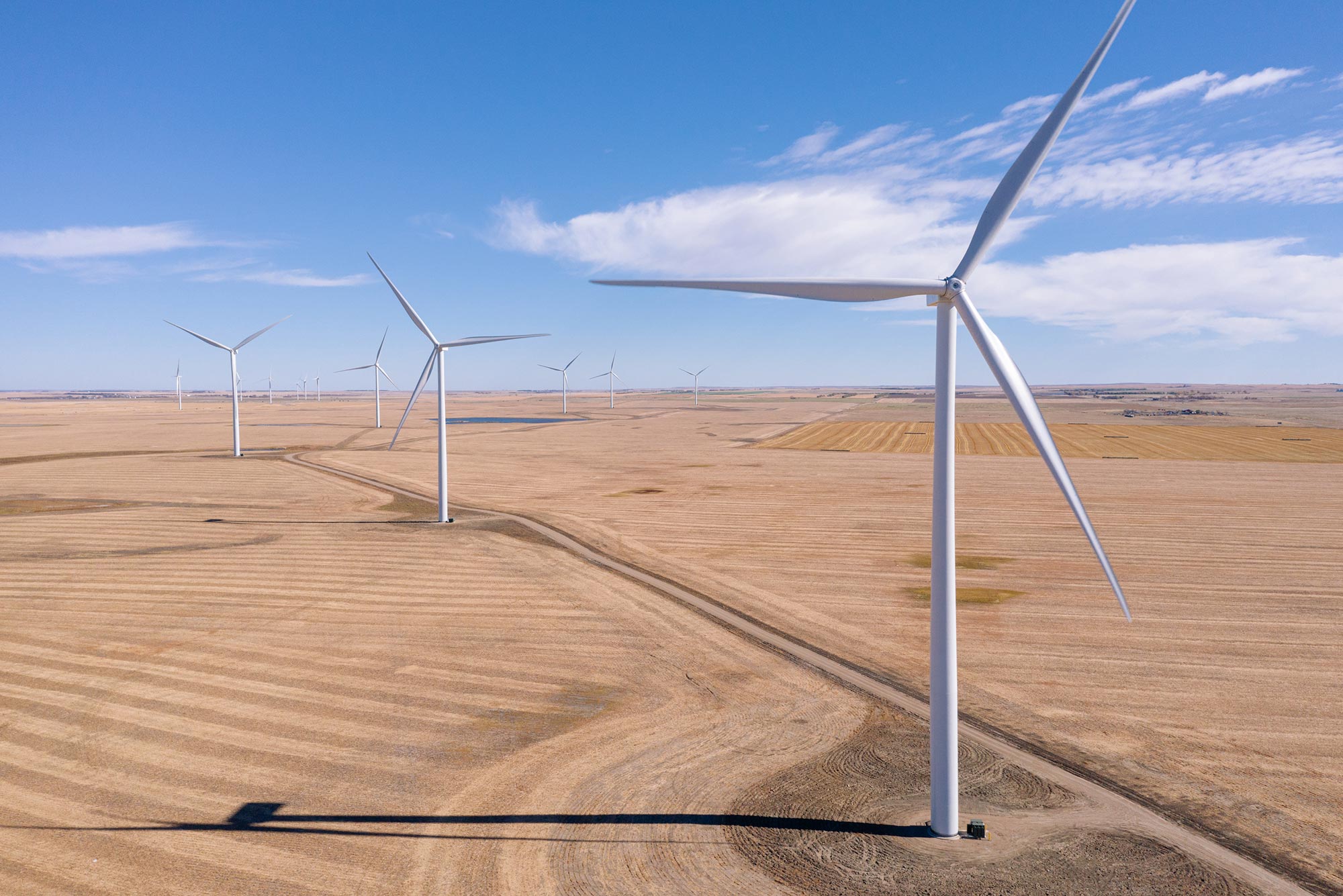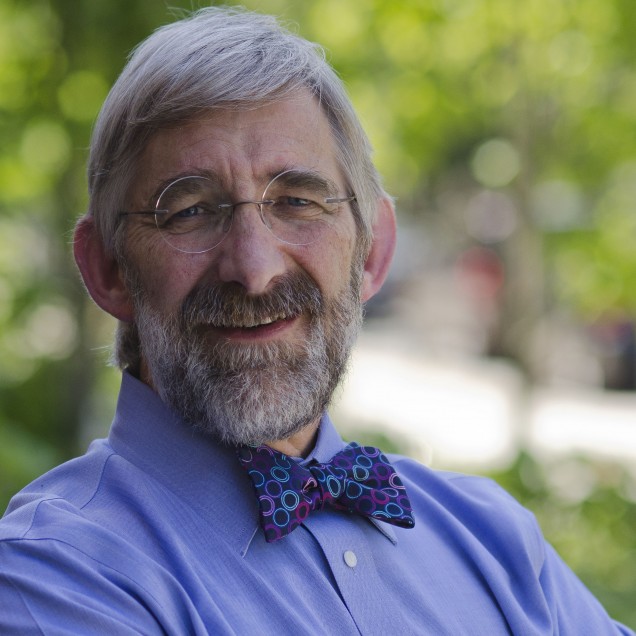Bill Gates Climate Change Nonprofit Gives Kudos to BU Wind Farm Project

BU wanted “a project that would have the greatest impact possible in reducing global emissions,” says BU sustainability AVP Dennis Carlberg. The South Dakota project “maximized our criteria and will displace two to three times more emissions than if the same project were located in our greening New England grid.” Photo by Loch & Key Productions
Bill Gates Climate Change Nonprofit Gives Kudos to BU Wind Farm Project
Organization highlights University’s effort as a model case study in helping reduce the planet’s carbon emissions
How important is climate change and clean air to Bill Gates? Here are a few headlines from recent weeks: “Bill Gates Has a Master Plan for Battling Climate Change” (Wall Street Journal); “Bill Gates: Solving Covid Easy Compared to Climate Change” (BBC News); “Bill Gates Weighs In on How to Avoid a Climate Disaster” (NPR).

In other words, it’s become a life mission for the Microsoft founder and billionaire philanthropist to help clean up the world’s air. So you can imagine the excitement at BU recently when Breakthrough Energy, the nonprofit Gates founded in 2015 to support innovations that will lead the world toward net-zero emissions, singled out the University’s South Dakota wind farm project as a model case study for other businesses to follow.
“BU selected a project in South Dakota that met all its criteria and generated the greatest potential impact,” Breakthrough Energy writes in its February 2021 Climate Action Playbook. “Including emissions reduction in its decision-making process ultimately resulted in BU achieving more than double the emissions reduction compared to a local project.”
What exactly is the project? We asked Dennis Carlberg, BU’s associate vice president for sustainability, to explain it, and share his reaction to being recognized by Gates’ organization.
Q&A
With Dennis Carlberg
BU Today: A lot of people may not understand how BU’s decision to purchase renewable energy from a wind farm in South Dakota helps the University achieve its larger, more strategic emission goals. Can you explain that decision?
Dennis Carlberg: When we think about the scale of the climate challenge, we need to respond at a scale the challenge demands. The Climate Action Plan Task Force argued that we needed to leverage the University’s investment to the greatest extent possible and developed 10 criteria for us to source renewable energy to match 100 percent of the University’s 205 million kilowatt hours (kWh) of annual usage. Renewable Energy Certificates, or RECs, are the currency of renewable energy, where one REC is created for each megawatt hour of renewable energy generated. Without receiving and retiring the RECs, organizations can’t make renewable energy claims. Since the RECs don’t represent the actual greenhouse gas reduction, we wanted to find a project that would have the greatest impact possible in reducing global emissions. We chose to find a renewable energy project that would displace the dirtiest electricity generation possible. Of the 127 projects in the dirtiest grids in the country, the project in South Dakota maximized our criteria and will displace two to three times more emissions than if the same project were located in our greening New England grid.
BU Today: What was your reaction when you heard the Climate Action Playbook mentions the BU wind farm project?
Dennis Carlberg: I know that WattTime, the group that validated our emissions-optimized procurement process, was writing a White Paper on our process, since Boston University is the first—to their knowledge—to do the analysis to maximize the timing of renewable energy generation when the greenhouse gas emissions is the greatest on the regional grid. I had no idea their paper would end up in the Gates Climate Action Playbook! I was very excited to see BU recognized as the case study for renewable energy.
I heard about it through Edison Energy, our renewable energy advisors who attended a business roundtable on the climate crisis with Bill Gates. Dozens of organizations have expressed interest in BU’s power purchase agreement, and we are excited to share lessons learned to encourage more large-scale renewable projects.
BU Today: Can you talk about BU’s efforts to rely less and less on fossil fuels, with projects like the Center for Computing & Data Sciences building?
Dennis Carlberg: The Center for Computing & Data Sciences is the most impactful building in Boston from a sustainability perspective. It will be the largest fossil fuel–free, carbon-neutral building in Boston. It is impactful because it illustrates beautifully the three steps to carbon neutral: 1) Maximize building energy performance (the building is about 30 percent more efficient than a building that meets the Massachusetts Energy Code); 2) Using the thermal mass of the earth for geothermal heating and cooling, we eliminate the need for natural gas—that is bold and allows the building to be fossil fuel–free; 3) Switching the energy source from gas to electricity allows us to source the energy from renewables, from BU Wind. That allows the building to be carbon-free.

Comments & Discussion
Boston University moderates comments to facilitate an informed, substantive, civil conversation. Abusive, profane, self-promotional, misleading, incoherent or off-topic comments will be rejected. Moderators are staffed during regular business hours (EST) and can only accept comments written in English. Statistics or facts must include a citation or a link to the citation.